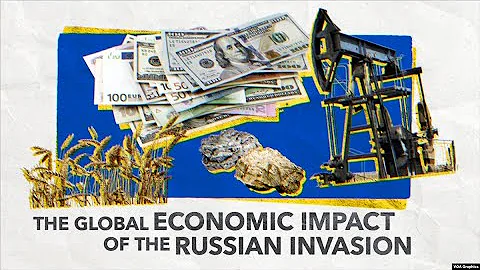Affected by the Russia-Ukraine conflict, Europe is plunged into an energy crisis, inflation is increasing, and the euro is weak. On the 13th, in European foreign exchange market transactions, the exchange rate of the euro against the U.S. dollar once fell to 1 euro to 0.998 U.S. dollars, the first time in the past 20 years.
ING strategist said that judging from the prediction range of the options market, the euro may fall as low as 0.9545 against the US dollar in the next four weeks. The last time the euro hit this low against the dollar was in 2002. The European Central Bank is expected to announce its first interest rate hike in 11 years on the 21st local time.
The United States relies on creating geopolitical crises to suppress the euro.
On the one hand, it is the Federal Reserve tightening monetary policy and raising interest rates multiple times to avoid risks and passing the crisis on to other countries. On the other hand, it is Europe's own weak economic performance and its influence on other countries. Following the United States in the Russia-Ukraine conflict and imposing multiple rounds of sanctions on Russia, the euro's plunge became an expected reality. Europe paid for the United States in the Russia-Ukraine conflict. Looking back at history, although the euro once posed the biggest potential challenge to the hegemony of the US dollar in the international capital market, 20 years later, it is still only a potential challenge. Indispensable for this is the United States' suppression of the euro in order to maintain the hegemony of the dollar. In the past 20 years, the United States has created or vigorously contributed to several geopolitical crises that have, without exception, strengthened the status of the dollar.
On January 1, 1999, the euro was launched as an accounting and transfer currency in 11 EU member states, marking the birth of the euro. This is regarded as a major event in the history of international currency. Europe has integrated its internal forces through a unified currency, and the euro has high hopes from the outside world.
Just two months later, the United States led NATO to brazenly bomb Yugoslavia without authorization from the United Nations under the banner of "preventing the humanitarian crisis in Kosovo," and the Kosovo War broke out. The war caused international capital, which was originally very optimistic about Europe, to panic and flee in search of a more stable economic environment. As a result, the euro's exchange rate against the US dollar has been falling since its birth. Although the Kosovo war ended in June 1999, the euro remained weak. At the end of 1999, the euro-dollar exchange rate fell below the parity level of 1 euro to 1 dollar.

In November 2000, the Iraqi government announced that it would change oil sales from U.S. dollars to euro settlement. OPEC has also repeatedly stated that it is considering switching to euro settlement. The hegemony of the U.S. dollar, which is closely linked to oil, is threatened. In addition, in 2002 After euro banknotes and coins officially began to circulate in 2008, the exchange rate of the euro against the U.S. dollar gradually returned to parity. After that, the exchange rate of the euro continued to appreciate.
In 2003, the United States launched a military strike against Iraq under the banner that "Iraq possesses weapons of mass destruction." However, no so-called weapons of mass destruction were found after the use of force. Instead, Iraq resumed settling its oil in US dollars and gave up. Euro.

Then US Representative Ron Paul (2006): The most important thing is that the relationship between the US dollar and oil must be maintained so that the US dollar can maintain its dominant position. Any attack on this relationship will be vigorously counterattacked. In November 2000, Saddam demanded that Iraqi oil be priced in euros. His arrogance was a threat to the US dollar.
The US credit rating agency contributed to the European debt crisis
In addition to launching wars, the United States does not hesitate to use other means to maintain its dollar hegemony. When Europe encountered a sovereign debt crisis, the three major rating agencies in the United States continued to add fuel to the fire, exporting and passing on the risks of the subprime mortgage crisis in the United States, boosting the dollar while putting pressure on the euro.
From 2007 to 2008, the United States encountered the subprime mortgage crisis and the economy suffered heavy losses. In order to save the market, the Federal Reserve started quantitative easing and printed a large amount of dollars, causing the dollar to continue to depreciate. It can be seen from the trend of the euro against the US dollar that from August 2007 to March 2008, the exchange rate of the euro against the US dollar continued to rise, from 1:1.36 in August 2007 to 1:1.58 in March 2008. . Under such circumstances, massive amounts of money fled from the United States to Europe.

At that time, in Europe on the other side of the ocean, a crisis was quietly brewing. In October 2009, the Greek government exposed its debt problem.At that time, due to the economic recession caused by the subprime mortgage crisis in the United States, the two pillar industries of Greece: tourism and shipping industry entered a cold winter, and Greece's financial situation was terrible. In December 2009, three major international rating agencies: Moody's, S&P and Fitch responded and downgraded Greece's sovereign credit rating. The crisis first broke out in Greece. Not only Greece, but also the three major rating agencies have successively downgraded the sovereign credit ratings of Portugal, Spain, Italy and Ireland , making it more difficult and costly for these countries to raise financing, and worsening their public debt situation. This vicious cycle makes it more difficult for countries in debt crises to get out of their predicaments and contributes to the deepening of the crisis. Looking back at the United States, the domestic economic recovery has stabilized since the second half of 2011. As the European debt crisis escalates, the demand for safe havens from international capital has greatly increased, and capital has returned to the United States.

The then European Commission President Barroso once questioned: It is reasonable that such a sensitive matter as a country's sovereign credit rating is in the hands of only three institutions, and these three institutions are all from the same country. ?

Li Yong, deputy director of the Expert Committee of the China Society of International Trade: Since the international financial crisis in 2008, the credibility of the three major rating agencies in the United States has plummeted. Dan Thomas, a senior American media person, believes that US sovereign rating agencies have always played a role in politics. S&P is not shy about the politics involved in its ratings. These three major rating agencies repeatedly attacked the EU during the European debt crisis, but ignored the debt problem of the United States for a long time. The US rating agencies that control the international ratings have adopted "double standards" out of safeguarding US interests, which cannot objectively reveal the country's credit. risky. Behind the European debt crisis is a deeper struggle. That is, the battle between the United States and Europe for currency dominance and debt resources.
Source: CCTV News





















